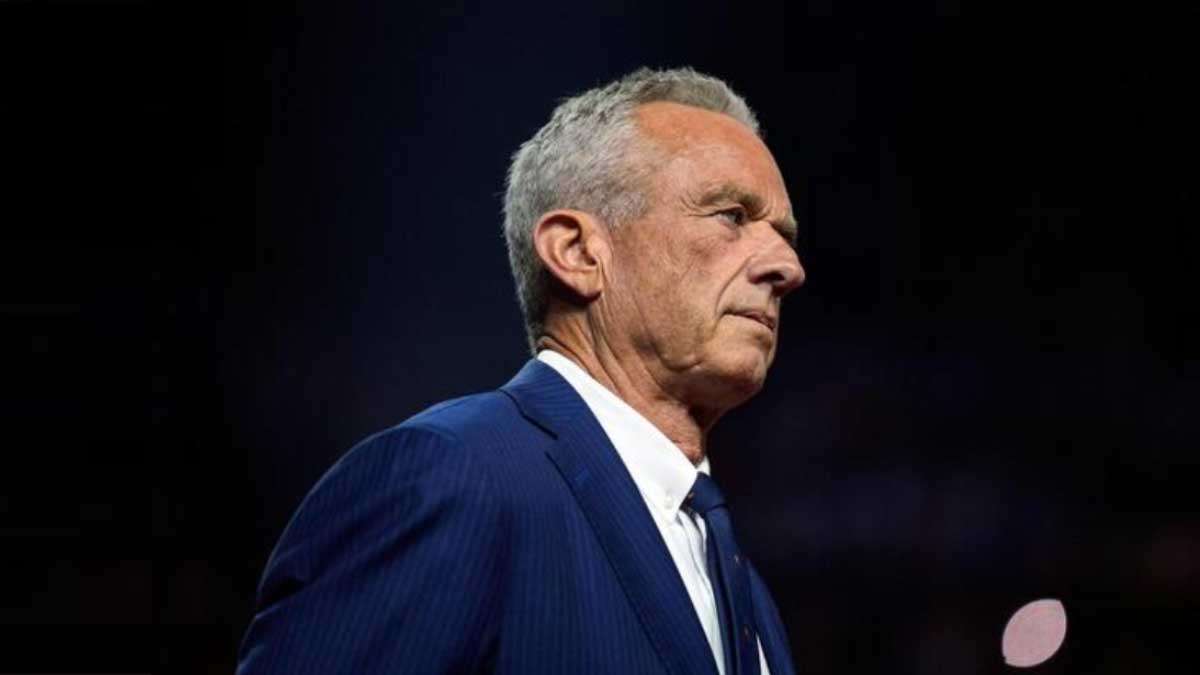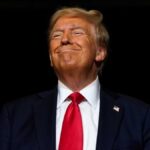- Home
- Billionaires
- Investing Newsletters
- 193CC 1000
- Article Layout 2
- Article Layout 3
- Article Layout 4
- Article Layout 5
- Article Layout 6
- Article Layout 7
- Article Layout 8
- Article Layout 9
- Article Layout 10
- Article Layout 11
- Article Layout 12
- Article Layout 13
- Article Layout 14
- Article Sidebar
- Post Format
- pages
- Archive Layouts
- Post Gallery
- Post Video Background
- Post Review
- Sponsored Post
- Leadership
- Business
- Money
- Small Business
- Innovation
- Shop
Recent Posts
Kennedy Jr. Remains on Ballot in Key Swing States

The U.S. Supreme Court has ruled that Robert F. Kennedy Jr. will remain on the ballot in two critical swing states—Wisconsin and Michigan—denying his last-minute request to be removed. This decision is significant as Kennedy, who recently endorsed former President Donald Trump, had sought to eliminate his name from the ballots following his suspension of the campaign earlier this year. The Supreme Court did not provide specific reasoning for its rejection of Kennedy’s arguments, which claimed that Michigan and Wisconsin were infringing on his First and Fourteenth Amendment rights by allowing him to stay on the ballot after he had requested his removal. The Court’s decision reflects a standard practice of not elaborating on rulings, leaving some questions unanswered about the implications of the case for other candidates in similar situations.
Justice Neil Gorsuch dissented in the case concerning Michigan, expressing that he would have supported Kennedy’s request for removal there. However, there were no dissenting opinions regarding the Wisconsin case, suggesting a consensus among justices on that matter. Kennedy’s petition to the Supreme Court was filed on October 21, asking for his name to be covered with stickers on the ballots, despite the fact that hundreds of thousands of voters had already cast their ballots in both states. This unusual request came after both the Michigan and Wisconsin Supreme Courts had ruled that his name would remain on the ballot, despite his announcement in August to suspend his campaign. Kennedy’s campaign team has been approached for comment regarding the Court’s decision but has yet to respond.
Initially running as a Democrat, Kennedy transitioned to an independent candidacy before dropping out of the race on August 23. He cited a lack of a “realistic path to an electoral victory” as his primary reason for suspending his campaign. During his time as a candidate, Kennedy managed to secure a place on the ballots in more than 20 states. After his withdrawal, he endorsed Trump, signaling a shift in his political alignment. Throughout his campaign, Kennedy aimed to mitigate concerns that his presence on ballots could serve as a spoiler in the election, particularly for Trump. To this end, he sought to have his name removed from ballots in several battleground states where his candidacy was viewed as potentially detrimental to Trump’s chances. Ultimately, he succeeded in having his name removed from five out of seven key states—Pennsylvania, Nevada, Georgia, Arizona, and North Carolina—while still remaining on the ballot in historically blue states, including New York.
Kennedy’s attempts to withdraw his name from ballots have been met with various legal challenges. Notably, in New York, he faced complications when state officials ruled that the address he provided on his petition did not qualify as his “fixed, permanent” residence. This ruling led to the invalidation of his petition to remain on the New York ballot, and his subsequent appeal was rejected by the Supreme Court late last month. This latest decision from the Supreme Court underlines the complexities surrounding ballot access and the legal rights of candidates, especially when they change their political affiliations or suspend their campaigns. It also reflects the growing concern among political strategists from both major parties regarding the influence of independent candidates in swing states—areas that could ultimately determine the outcome of the presidential election.
As the political landscape evolves, the implications of Kennedy’s presence on the ballot remain significant. His endorsement of Trump has added a layer of complexity to the race, as both parties grapple with how to respond to his appeal among voters. Kennedy’s previous campaign positioned him as a populist alternative, appealing to a segment of the electorate disillusioned with traditional party politics. His decision to endorse Trump could shift dynamics in key states where independent voters may play a pivotal role. Polling data reflects a closely contested race, with varying results from different sources. As of the latest updates, FiveThirtyEight’s national polling average showed Kamala Harris leading Trump by a narrow margin of 1.3 points. In contrast, RealClearPolitics reported Trump with a slight advantage of 0.4 points, illustrating the highly competitive nature of the upcoming election.
Despite his efforts to avoid being seen as a spoiler for Trump, Kennedy’s actions raise questions about the interplay between independent candidates and the major parties. His simultaneous attempts to remain on ballots in states where he believes he could attract votes, while seeking to withdraw in battleground states, highlight the strategic calculations that candidates make in a highly polarized political environment. In conclusion, the Supreme Court’s decision to keep Kennedy on the ballot in Wisconsin and Michigan marks a notable moment in the 2024 presidential election. As Kennedy’s campaign continues to evolve, the effects of his candidacy, along with his recent endorsement of Trump, will likely be closely monitored by political analysts and voters alike. The complexities of ballot access and the implications of independent candidacies remain a crucial aspect of the unfolding political narrative.
Recent Posts
Categories
- 193 Countries Consortium Partner1
- 193cc Digital Assets2
- 5G1
- Aerospace & Defense48
- AI37
- Arts3
- Banking & Insurance11
- Big Data3
- Billionaires1,263
- Boats & Planes1
- Business332
- Careers13
- Cars & Bikes79
- CEO Network1
- CFO Network17
- CHRO Network1
- CIO Network1
- Cloud10
- CMO Network18
- Commercial Real Estate7
- Consultant1
- Consumer Tech194
- CxO1
- Cybersecurity73
- Dining1
- Diversity, Equity & Inclusion4
- Education7
- Energy8
- Enterprise Tech29
- Events11
- Fintech1
- Food & Drink2
- Franchises1
- Freelance1
- Future Of Work2
- Games149
- GIG1
- Healthcare79
- Hollywood & Entertainment203
- Houses1
- India’s 1000 Richest1
- Innovation46
- Investing2
- Investing Newsletters4
- Leadership65
- Lifestyle11
- Manufacturing1
- Markets20
- Media327
- Mobile phone1
- Money13
- Personal Finance2
- Policy569
- Real Estate1
- Research6
- Retail1
- Retirement1
- Small Business1
- SportsMoney42
- Style & Beauty1
- Success Income1
- Taxes2
- Travel10
- Uncategorized13
- Vices1
- Watches & Jewelry2
- world's billionaires1,232
- Worlds Richest Self-Made Women2
Related Articles
South Korea Plane Crash: A Tragic Loss and Global Mourning
The tragic plane crash at South Korea’s Muan International Airport on Sunday...
By 193cc Agency CouncilDecember 30, 2024H-1B Visa Debate Splits Trump Allies and Silicon Valley
The debate over H-1B visas has once again become a contentious issue,...
By 193cc Agency CouncilDecember 28, 2024Trump Moves $4B Stake in Truth Social Parent, Stock Drops 6%
Donald Trump recently transferred his 57% stake in Trump Media & Technology...
By 193cc Agency CouncilDecember 20, 2024House Rejects Trump-Backed Funding Bill, Shutdown Looms
The U.S. House of Representatives rejected a new government funding bill on...
By 193cc Agency CouncilDecember 20, 2024














Leave a comment